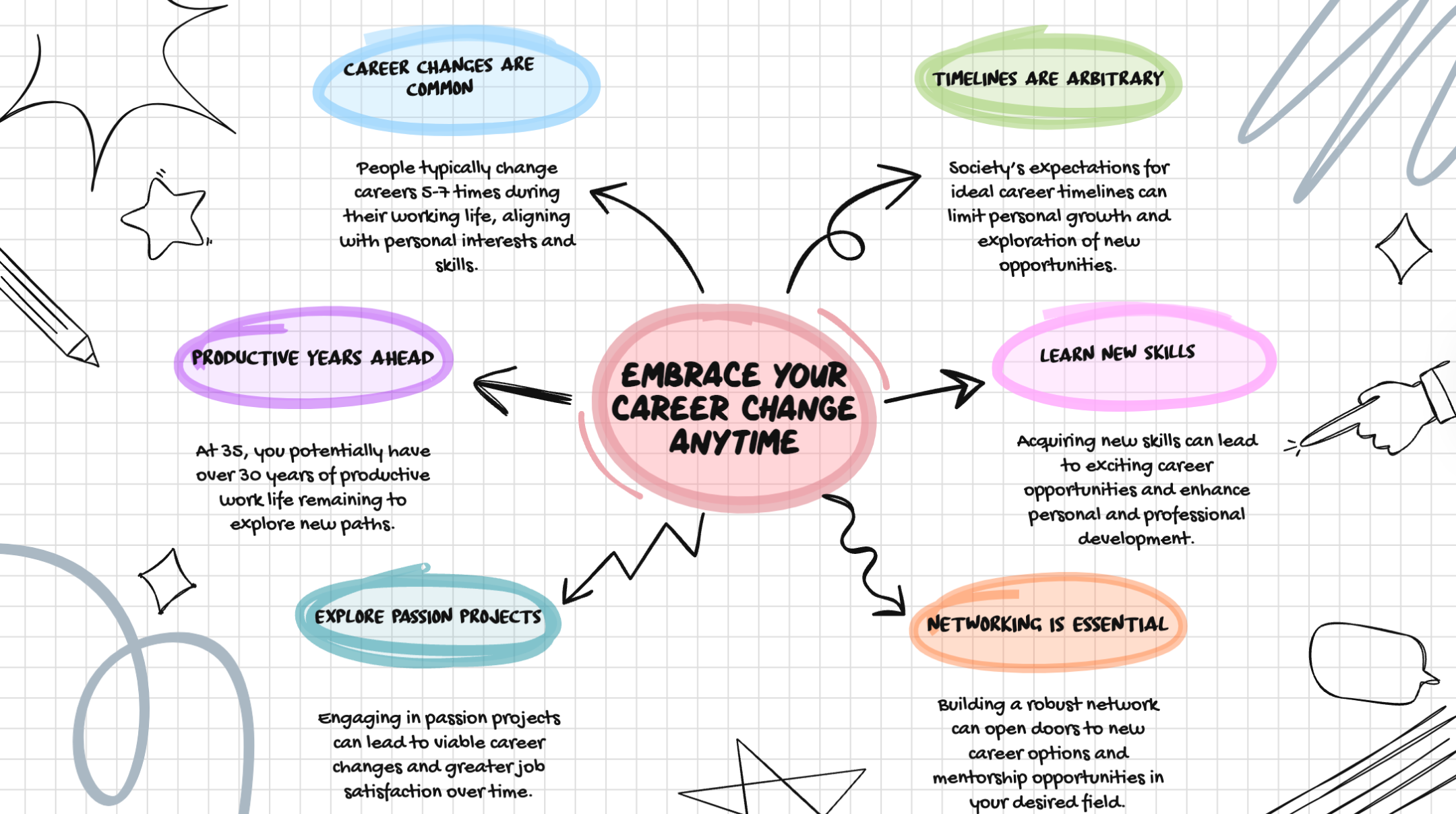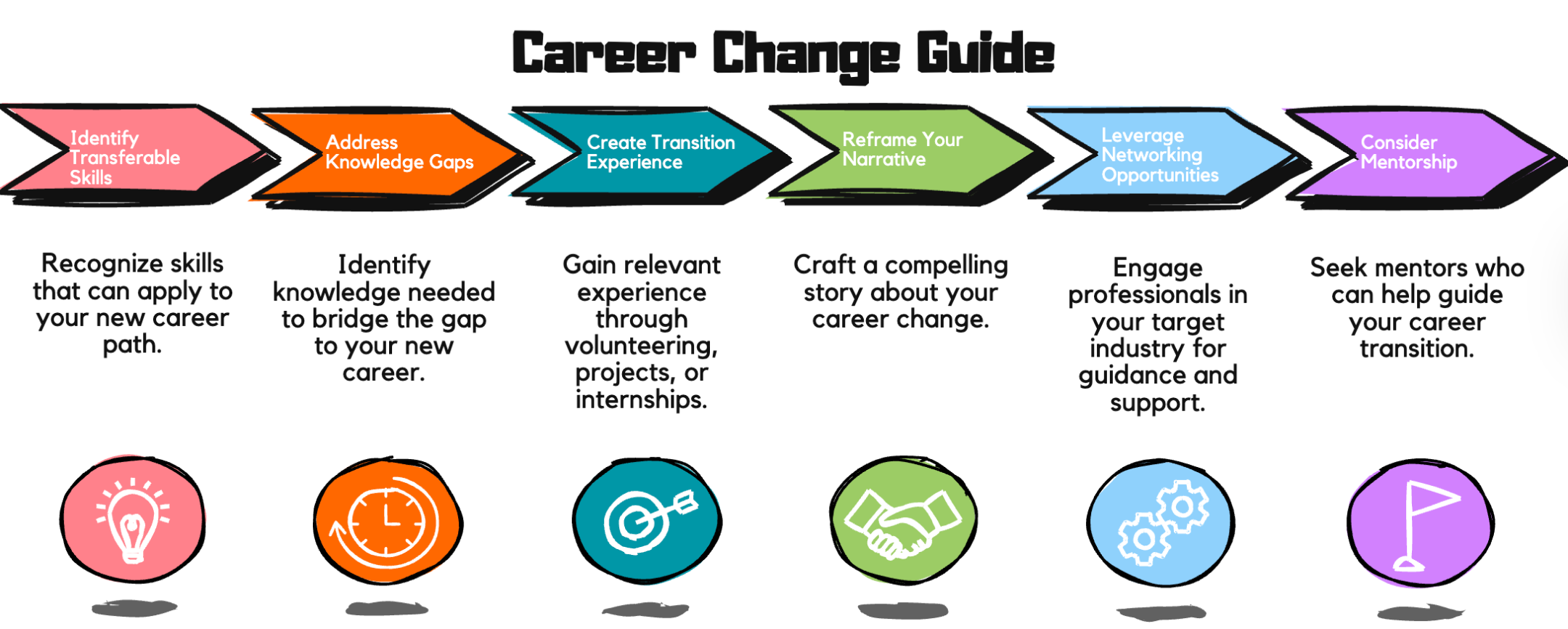ALorem ipsum dolor sit amet, consectetur adipiscing elit. Maecenas eu porta tellus. Mauris sit amet efficitur velit, vitae mollis ipsum. Cras a facilisis sem, vulputate accumsan diam. Praesent molestie, mauris nec dictum condimentum, sem metus lobortis orci, vitae auctor nunc ante et nunc. Phasellus dui ligula, hendrerit eget urna sed, porttitor sagittis libero. Nam tempor felis quis erat imperdiet pulvinar. Aenean euismod vitae nibh eu pretium. Cras quis elementum risus, nec ultrices felis. Nulla aliquet elementum erat et finibus. Quisque aliquam quam ultrices nibh congue sollicitudin
When was the moment you realised your career path wasn't bringing you the fulfillments you expected? Perhaps it was after a particularly soul-crushing meeting, or during a quiet moment of reflection on a milestone birthday. At 25, 30, or 35, the prospect of changing careers can feel simultaneously exhilarating and terrifying, leaving you with one pressing question: 'Have I missed my window of opportunity?
Let's address this directly: No, it's not too late. Not even close.

Society has created arbitrary timelines for career progression that simply don't reflect reality:
This outdated framework ignores a fundamental truth: careers aren't linear paths but evolving journeys that reflect our personal growth. Consider these facts:
At 25, you have:
Real Example: James started as an accountant but realised within three years that he was more passionate about user experience design. At 25, he took a salary cut to become a UX design intern. Five years later, he was leading design teams at a major tech company, earning double his accounting salary and finding significantly more fulfillment in his work.
At 30, you bring:
Real Example: Samantha spent her 20s in corporate marketing but felt increasingly drawn to environmental work. At 30, she leveraged her marketing and communication skills to land a role at an environmental nonprofit. Though initially at a lower position than she'd held in corporate, within 18 months her unique combination of business acumen and passion for sustainability made her an invaluable asset, leading to rapid advancement.
At 35, your advantages include:
Real Example: Michael had built a successful career in sales but felt increasingly drawn to teaching. At 35, he completed an accelerated teacher certification programme while continuing to work. His sales experience gave him natural classroom presence, and his understanding of business applications made his teaching uniquely relevant to students. Within four years, he was heading his department and found his second career more rewarding than he ever imagined.

Every career equips you with valuable abilities that transfer to new contexts:
Exercise: Create a skills inventory by listing everything you're good at, regardless of where you learned it. Then research job descriptions in your target field to identify overlap.
You don't need to start from zero. Identify the specific knowledge you need to build a bridge to your new career:
The key is proportional investment—invest time and money in education based on the actual requirements of your target career, not assumptions.
Build experience in your new field before making a full switch:
How you tell your career change story matters tremendously:
Weak narrative: "I'm tired of marketing and want to try something new in data science."
Strong narrative: "Throughout my marketing career, I've been increasingly drawn to the analytical aspects of campaign measurement. I've completed advanced data science coursework while building predictive models for my current employer's campaigns, and I'm now seeking to focus exclusively on turning data into actionable business insights."
Not necessarily. While some career changes require stepping back initially, many allow you to enter at a lateral level by leveraging transferable skills. The key is identifying careers where your existing expertise adds unique value.
Career changes don't always mean immediate salary reduction. Consider:
Concern about others' judgement is natural but rarely matches reality. Most people secretly admire those with the courage to pursue more fulfilling work. Additionally, career changes have become increasingly normal and respected in modern professional culture.
The question isn't whether it's too late to change careers at 25, 30, or 35—it's whether you want to spend the next several decades doing work that doesn't fulfil you when alternatives exist.
Every person featured in this article faced doubt, uncertainty, and the temptation to stick with the familiar. What united them wasn't fearlessness or perfect timing, but the courage to challenge their limitations and nurture their potential.
At WCFCAcademy, we specialise in guiding professionals through transformative career changes. Our Career Transition Programme includes personalised assessment, strategic planning, and ongoing support to ensure your career change leads to greater fulfilment and success. Visit www.wcfc.academy to learn how we can help you make your next career chapter your best one yet.
“Raesent molestie, mauris nec dictum condimentum, sem metus lobortis orci, vitae auctor nunc ante et nunc ligula”



Your potential is infinite. Our mission is to activate and unleash it in the right environment.